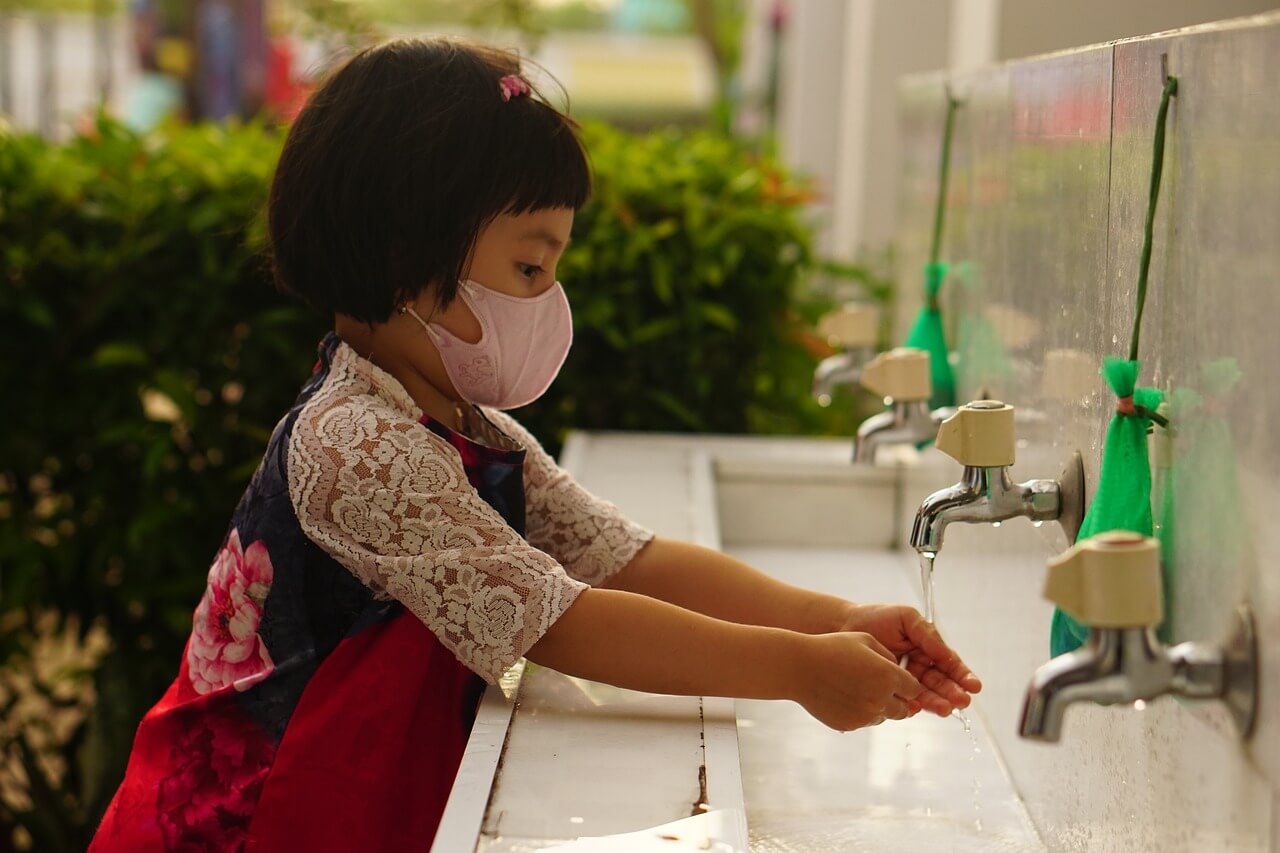Although we’ve all seen our lives impacted by the novel coronavirus, the past two years have been a particularly difficult time for parents. Between dealing with school closures, a growing assortment of exposure risks and general unease on the part of their children, this has been a trying period for parents everywhere. With COVID-19 entering its third year as an active threat, it’s important to avoid letting your guard down as a result of understandable pandemic fatigue. Parents looking for effective ways to keep their kids safe and healthy in the new year should consider the following measures.
Stay Abreast of New Exposure Risks
It behooves parents to stay abreast of newly-emerged exposure risks in their respective communities – particularly at places where children congregate. For example, if new cases are being reported at one of your children’s schools, you should seriously consider keeping them at home until the threat has died down. Additionally, if your kids’ schools are currently offering remote learning options, you won’t have to worry about them falling behind should you deem it necessary to temporarily take them out of school.
Make an Effort to Avoid Crowds
With Omicron and other COVID-19 variants currently tearing across the U.S., crowds are not your friend. As such, avoiding crowded areas and ensuring that your children do the same can go a long way in helping you avoid exposure risks. Crowds in poorly ventilated areas can be particularly dangerous. Additionally, when out in public, any children over the age of two should be masked.
Encourage Proper Hygiene
Proper hygiene can also help curb the spread of COVID-19 and contribute to your family’s safety. Unfortunately, some children aren’t terribly keen on hygiene. In fact, the younger the child, the less apt they’ll be to practice proper hygiene. So, if any of your children regard hygiene as an afterthought, make a point of instilling the importance of regular hand-washing and bathing in them. In case your initial talk fails to get the point across, take care to correct them every time you see them failing to practice proper hygiene.
Your kids – and every other member of your household – should wash their hands every time they come into the house from outside. Furthermore, hand-washings should last at least 20 seconds. As an added precaution, doorknobs, tables and other surfaces and objects that are frequently touched should be disinfected on a regular basis.
Promote Proper Sneezing and Coughing Habits
Since COVID-19 and a variety of other illnesses are commonly transferred via droplets from sneezes and coughs, it’s in everyone’s best interest that you educate your children on proper sneezing and coughing etiquette. Instead of sneezing and coughing without covering their mouths, your kids should be encouraged to do both into their sleeves or tissues. This is also preferable to sneezing and coughing into one’s hands.
Get Vaccinated
The most effective way to protect yourself and your children from serious and fatal COVID-19 infections is getting vaccinated against the novel coronavirus. So, unless you suffer from a medical condition that makes getting vaccinated unsafe, you have no excuse for walking around unvaccinated at this point. COVID-19 vaccines are free, readily available and administered at a wide assortment of pharmacies and medical facilities – many of which will happily take walk-ins. While you may experience some minor side-effects in the wake of your shots, these shouldn’t last more than a few days. Furthermore, there’s no question that these side-effects are preferable to an active COVID infection.
It should also be noted that the CDC recommends getting the mRNA vaccines – i.e., Pfizer-BioNTech and Moderna – over the Johnson & Johnson’s Jansen vaccine, although the J&J/Jansen vax may be considered under certain circumstances. In addition to getting vaccinated, you should make sure that any children aged five and up in your household get their vaccine, as well. Currently, the Pfizer-BioNTech vaccine is the only one authorized for use on children between the ages of five and eleven. Additionally, moderate-to-severely immunocompromised 5-to-11-year-olds can receive an additional primary dose of the Pfizer-BioNTech vax 28 days after their second shot. Furthermore, as of January 5th, 2022, the CDC also recommends Pfizer-BioNTech boosters for 12-to-17-year-olds five months after their initial vaccination series.
Get Your Vaccine Booster
In addition to your initial vaccination, you’ll need to stay current with vaccine boosters. At present, adults who received the Moderna vaccine are eligible to receive a booster at least six months after their initial vaccination series, while adults who received the Pfizer-BioNTech vaccine are now able to receive a booster at least five months after their initial shots. Additionally, adults who received the Johnson & Johnson’s Jansen vaccine are eligible to receive a booster at least two months after their initial shot.
Since COVID-19 appears poised to remain a threat for the foreseeable future, there’s a good chance further boosters will be necessary. To stay abreast of booster-related news, take care to visit the CDC and WHO websites on a regular basis.
Encourage Healthy Eating Habits
You can also help you kids stay healthy on the dietary front by encouraging good eating habits. This entails feeding your children a diet that’s rich in fruits, vegetables, whole grains and proteins. If healthy food has historically been a tough sell in your household, it may be time to get creative. For example, getting your kids involved in meal prep can provide them with a greater respect for your efforts to keep them well-fed and a personal connection to meals they wouldn’t ordinarily try. To this end, you may also want to consider taking part in family nutrition programs.
Of course, this doesn’t mean you’ll have to cut junk food out of their diet entirely. Just make sure that it’s consumed in careful moderation and used as a reward for continued adherence to healthy eating habits.
For many of us, the past two years are unlike anything we’ve ever been through. A pandemic of this magnitude is far outside the realm of most people’s life experience, and grappling with the various changes COVID-19 has facilitated has been challenging, to say the least. The pandemic has been especially rough on parents, who have had to go to great measures to keep both themselves and their children safe from the novel coronavirus. As the COVID-19 enters its third year, parents can maximize their safety efforts by heeding the tips discussed above.




